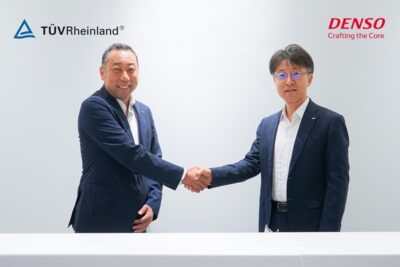
DENSO Corporation and TÜV Rheinland Japan Ltd. have signed a memorandum of understanding (MoU) to jointly promote sustainable manufacturing practices and accelerate the adoption of the Digital Product Passport (DPP) for industrial products, including batteries.
With global momentum toward carbon neutrality and a circular economy, regulatory frameworks are evolving rapidly. The EU’s Ecodesign Regulation, enforced in July 2024, requires manufacturers to integrate environmental considerations from the design stage and mandates the introduction of DPPs. These digital records capture key product information such as manufacturer details, material composition, CO2 emissions, and recyclability.
In addition, the European Battery Regulation will make ‘Battery Passports’ mandatory from February 2027 for automotive and industrial batteries, marking the first large-scale implementation of the DPP concept.
DENSO has been developing a Battery Passport application to comply with these requirements and, in February 2025, became the first Japanese company to secure EcoPass certification from Catena-X. Meanwhile, TÜV Rheinland Japan, a leading third-party certification body, offers testing, inspection, and certification services across industries to ensure compliance with global standards.
Under the new MoU, both organizations will collaborate as strategic partners on verification and certification services related to the Ecodesign Regulation, the European Battery Regulation, and future DPP initiatives. This partnership strengthens efforts to enable sustainable product development and regulatory compliance in global markets.




COMMENTS